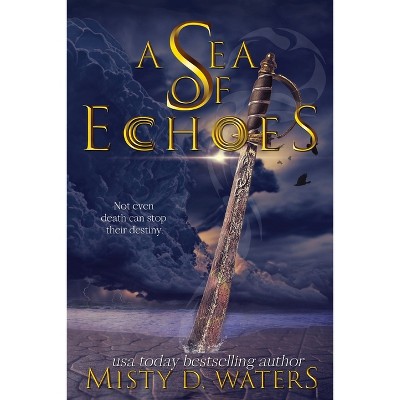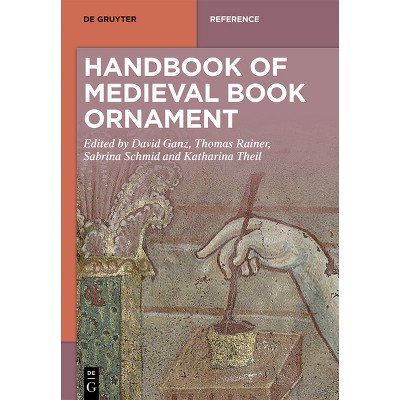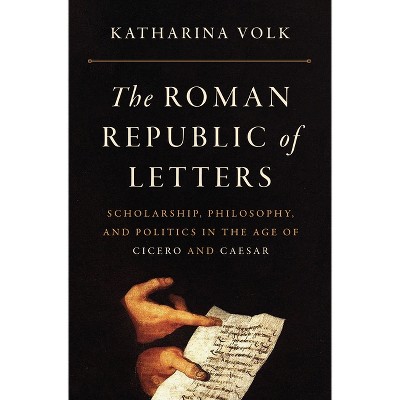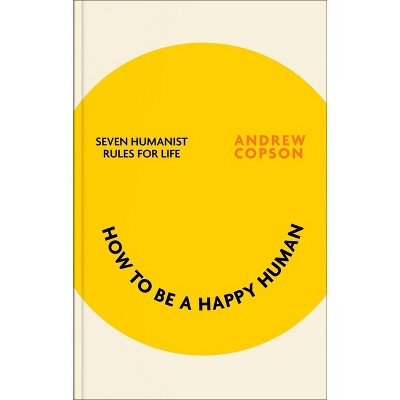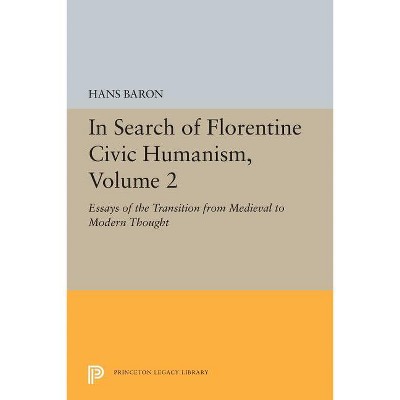Sponsored

Cartographic Humanism - by Katharina N Piechocki (Paperback)
$38.00
In Stock
Eligible for registries and wish lists
Sponsored
About this item
Highlights
- Piechocki calls for an examination of the idea of Europe as a geographical concept, tracing its development in the 15th and 16th centuries.
- About the Author: Katharina N. Piechocki is associate professor of comparative literature at Harvard University.
- 304 Pages
- History, Europe
Description
Book Synopsis
Piechocki calls for an examination of the idea of Europe as a geographical concept, tracing its development in the 15th and 16th centuries. What is "Europe," and when did it come to be? In the Renaissance, the term "Europe" circulated widely. But as Katharina N. Piechocki argues in this compelling book, the continent itself was only in the making in the fifteenth and sixteenth centuries. Cartographic Humanism sheds new light on how humanists negotiated and defined Europe's boundaries at a momentous shift in the continent's formation: when a new imagining of Europe was driven by the rise of cartography. As Piechocki shows, this tool of geography, philosophy, and philology was used not only to represent but, more importantly, also to shape and promote an image of Europe quite unparalleled in previous centuries. Engaging with poets, historians, and mapmakers, Piechocki resists an easy categorization of the continent, scrutinizing Europe as an unexamined category that demands a much more careful and nuanced investigation than scholars of early modernity have hitherto undertaken. Unprecedented in its geographic scope, Cartographic Humanism is the first book to chart new itineraries across Europe as it brings France, Germany, Italy, Poland, and Portugal into a lively, interdisciplinary dialogue.Review Quotes
"Piechocki's study is a complex contribution to the study of the understanding of Europe in the Renaissance... Although this is never explicitly mentioned by the author herself, this book can also be understood as a serious examination of the reception of Ptolemaic geography in the 15th and 16th centuries... Piechocki's impressive contribution remeasures the broad field of early modern European research."-- "H-Soz-Kult (translated from German)"
"Katharina Piechocki's Cartographic Humanism is an indispensable book for scholars in many disciplines who think or write about cartography, Europeanness, or [the] Renaissance."-- "The Polish Review"
"How did Europe emerge through pictorial maps, and what did early Renaissance maps and cartopoetics have to do with that emergence? Cartographic Humanism is an intertextual study of the history of cartography that looks at transnational spaces of fantasy and exploration, knowledge and emotion, and symbolic places and claimed discovery. . . .In this effervescent book of literary criticism and the map, there is much creative ground to be gained."-- "Austrian History Yearbook"
"[A] timely book...well worth a read."-- "Journal of Historical Geography"
"Katharina N. Piechocki's elegant and incisive new work on how an assemblage of sixteenth-century humanists took the classical designation of 'Europa' and transformed it from a loosely defined appendage to Asia's landmass into a more sharply delineated territory with political and metaphysical overtones."-- "Isis"
"Cartographic Humanism is a deeply ambitious, exhaustively researched, and carefully argued book that covers a number of literary and historical issues in Renaissance European culture. Piechocki successfully brings together the unwieldy materials of language, local identification, a multidisciplinary approach, and temporal breadth, providing valuable insight into Latin humanist texts that undergird more familiar vernacular cartographic texts."--William J. Kennedy, author of Petrarchism at Work: Contextual Economies in the Age of Shakespeare
"Cartographic Humanism is a tour de force. Impeccably researched and beautifully written, this major intervention into the histories of cartography and literature asks what we mean when we say 'Europe.' Piechocki addresses this question--so urgent today--by exploring how early modern poets and mapmakers imagined interstitial geographies and, thus, Europe's ever-changing borders and contact zones. Drawing from a rich multilingual archive of humanists from Germany, Poland, France, Italy, and Portugal, Cartographic Humanism shows that Europe is not a monolith and never was. A must-read not only for scholars of early modernity, but for anyone who has ever said the word 'Europe.'"--Phillip John Usher, author of The Exterranean: Extraction in the Humanist Anthropocene
"Cartographic Humanism is the wonderful achievement of a major critic, scholar, literary historian and multicultural thinker. With wide-ranging scholarship, philological acuteness, sensitivity to textual and poetic nuance, and enviable linguistic ease in Latin, German, Polish, French, Italian, Spanish, English and Portuguese, Katharina Piechocki offers a new understanding of the sixteenth-century cartographic invention of Europe from a pot-pourri of real and imagined borderlands. In taut analyses of writers little studied outside specialist contexts or well-known but not as mappers of a new Europe--Conrad Celtis, Maciej Miechowita, Geoffroy Tory, Girolamo Fracastoro and Luís Vaz de Camões--Piechocki tracks a cartopoietic story that 'starts' with efforts to delimit central (Germanic), eastern (Polish or 'Sarmatic') and a core (French) 'Europe' from and against indeterminate or non-existent Asian, Mediterranean and African borders, passes through attempts to establish this 'place' against an also indeterminate other--'America' or 'not-Europe, ' all intimately bound, in Fracastoro, to disease and/or its cure and to the fictive imagination, and 'ends' with Camões' nomad poetic imposition of a colonizing Mediterranean map on an age-old Indian Ocean one, a European cartography on and of the world. In the effervescent Renaissance scholarship of history as cartography Piechocki's is a splendidly compelling new voice, one, too, that lets us see hitherto silent or 'peripheral' actors as key to modern Europe's invention."
--Timothy Reiss, author of Mirages of the Selfe: Patterns of Personhood in Ancient and Early Modern Europe
"Piechocki is conceptually rigorous, she reads many languages and her research is impeccable. She is a careful critic but also a deeply imaginative historian. This is a contribution to the 'darker side' of cartography and the Renaissance, emphasizing the relationship between writing and scholarship and the exercise of power and exploitation, but its analysis never departs from the measured and reflective."-- "Times Higher Education"
"This is an ambitious book which convincingly achieves its goals. It makes great claims for Humanism, the Renaissance and especially for cartography in establishing a new idea of Europe, and presents detailed evidence for those claims in closely argued and highly detailed case studies."--Michael Wintle "European History Quarterly"
"Through a close reading of literary texts, Cartographic Humanism traces a shift in understanding of the shapes, meanings, relationships, and constituent parts of the globe. Piechocki's linguistic range is astounding, and her fluid translations convey the poetry of the original passages. She has assembled a rich array of texts and images, and the imaginative ways in which she reads them add up to something new and compelling. She draws out their cartographic ideas and makes a convincing case for their centrality in defining both Europe and its swaggering presence across the globe. Her readings are fresh and energetic. The book will be a major contribution to literary and cultural studies and their intersection with the history of cartography."--Valerie A. Kivelson, author of Cartographies of Tsardom: The Land and Its Meanings in Seventeenth-Century Russia
About the Author
Katharina N. Piechocki is associate professor of comparative literature at Harvard University.Dimensions (Overall): 9.0 Inches (H) x 6.0 Inches (W) x .73 Inches (D)
Weight: 1.05 Pounds
Suggested Age: 22 Years and Up
Number of Pages: 304
Genre: History
Sub-Genre: Europe
Publisher: University of Chicago Press
Theme: Renaissance
Format: Paperback
Author: Katharina N Piechocki
Language: English
Street Date: September 13, 2021
TCIN: 1006097952
UPC: 9780226816814
Item Number (DPCI): 247-42-7410
Origin: Made in the USA or Imported
If the item details aren’t accurate or complete, we want to know about it.
Shipping details
Estimated ship dimensions: 0.73 inches length x 6 inches width x 9 inches height
Estimated ship weight: 1.05 pounds
We regret that this item cannot be shipped to PO Boxes.
This item cannot be shipped to the following locations: American Samoa (see also separate entry under AS), Guam (see also separate entry under GU), Northern Mariana Islands, Puerto Rico (see also separate entry under PR), United States Minor Outlying Islands, Virgin Islands, U.S., APO/FPO
Return details
This item can be returned to any Target store or Target.com.
This item must be returned within 90 days of the date it was purchased in store, shipped, delivered by a Shipt shopper, or made ready for pickup.
See the return policy for complete information.
Trending Non-Fiction

$19.31
was $20.98 New lower price
4 out of 5 stars with 64 ratings

$18.28
was $19.58 New lower price
4.7 out of 5 stars with 17 ratings

$4.59
MSRP $7.99
Buy 2, get 1 free select books
4.8 out of 5 stars with 123 ratings

$6.20
MSRP $10.95
Buy 2, get 1 free select books
4.8 out of 5 stars with 33 ratings

$7.09
MSRP $9.99
Buy 2, get 1 free select books
4.9 out of 5 stars with 46 ratings
